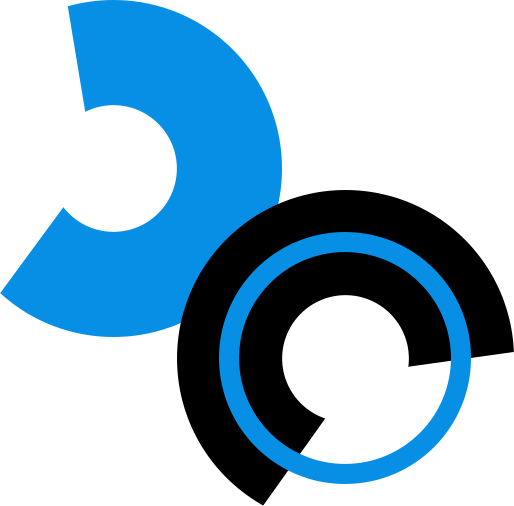Self-adhesive industry ushered in a wave of technological innovation, green packaging materials into focus
Industry Background
In recent years, adhesive materials have become an indispensable part of the packaging and labeling sector, with demand growing rapidly. According to market research reports, the global adhesive label market is expected to grow at an annual rate of more than 5% over the next five years, primarily driven by the continuous pursuit of efficient and eco-friendly labeling solutions in the e-commerce, food and beverage, pharmaceutical, cosmetics, and logistics industries.
Traditional adhesive materials are primarily made from synthetic chemical materials, which may pose environmental burdens during production and use. However, with increasing global attention on issues like plastic pollution and carbon emissions, eco-friendly adhesive materials have become a key focus for industry development. In developed markets like the EU, stringent environmental regulations are pushing manufacturers of adhesive materials to innovate faster and introduce new products that meet sustainable development standards.
Innovation Leading the Future
In response to these industry trends, leading global adhesive material manufacturers are increasing their investment in research and development, introducing new adhesive products that are eco-friendly, biodegradable, and more functional.
1. Biodegradable Materials
Technological innovation in the adhesive industry is primarily reflected in materials. Many companies have begun to develop and use biodegradable materials, such as adhesive substrates based on plant fibers and bio-based plastics. These materials can naturally degrade at the end of their lifecycle while still offering similar durability and adhesion as traditional plastic-based substrates, making them suitable for food packaging and other short-term use products.
2. Water-Based Adhesives
Water-based adhesives are becoming increasingly popular as an eco-friendly alternative to traditional solvent-based adhesives. These adhesives release no volatile organic compounds (VOCs) during production and application, making them environmentally friendly without compromising performance. As governments around the world tighten regulations on industrial emissions, water-based adhesives are expected to gain a larger market share in the future.
3. Smart Labels
The advent of smart label technology is another highlight in the adhesive industry. By integrating technologies such as RFID (radio-frequency identification) and NFC (near-field communication) into adhesive labels, brands can achieve full tracking of goods, inventory management, and anti-counterfeiting verification. These smart labels have a wide range of applications in industries such as pharmaceuticals, electronics, logistics, and luxury goods. They not only improve efficiency but also greatly enhance brand protection capabilities.
4. Specialty Adhesive Materials
As the consumer goods industry becomes more segmented and customized, specialty adhesive materials are gaining more attention in the market. These materials include labels with specific functions, such as high-temperature resistance, low-temperature resistance, waterproofing, and oil resistance, and are suitable for extreme applications such as automotive manufacturing, chemical industries, and outdoor advertising. The introduction of these high-performance labels ensures long-lasting adhesion and reliable information display in harsh environments.
Market Response and Future Outlook
The demand for eco-friendly adhesive materials is growing rapidly among major brands, particularly in e-commerce packaging, fast-moving consumer goods, and the pharmaceutical industry. The use of eco-friendly materials has increasingly become a trend. Many internationally renowned brands are incorporating eco-friendly adhesive materials into their sustainability strategies, aiming to reduce packaging waste and enhance their brand image through the use of green materials.
For example, many global food brands have recently started adopting biodegradable adhesive labels to reduce their dependence on plastic and lower their carbon footprint. Additionally, the logistics and courier industries are also actively promoting the use of eco-friendly adhesive labels, helping businesses reduce the environmental impact across supply chains.
Industry experts predict that as more companies incorporate environmental sustainability into their core strategies, the market share of eco-friendly adhesive materials will continue to expand over the next five years. At the same time, the widespread adoption of smart label technology will bring new growth points to the adhesive industry, particularly in e-commerce, healthcare, and luxury goods, where smart labels have significant application potential.
Furthermore, in the context of increasingly complex global supply chains, the smart and efficient tracking capabilities of labels will become an essential tool for companies to improve operational efficiency. Smart labels not only allow companies to monitor inventory status in real-time but also effectively prevent counterfeit goods from entering the market, thereby protecting brand reputation.
Eco-Friendliness and Sustainability are the Future
Overall, the future of the adhesive industry will revolve around eco-friendliness and sustainability, with technological innovation driving industry transformation. As consumer awareness of environmental issues increases and governments strengthen environmental regulations, the market will place greater emphasis on the development and application of green adhesive materials. Manufacturers need to continuously innovate and introduce eco-friendly, high-performance adhesive products to meet the growing demands of customers.
At the same time, smart and personalized label solutions will play an increasingly important role in future markets. Adhesive manufacturers and brands must stay in line with industry trends, leveraging both eco-friendly practices and technological innovation to find new business opportunities and achieve sustainable growth.
LATEST NEWS
- Self-adhesive industry ushered in a wave of technological innovation, green packaging materials into focus 2024-10-23 10:53:29
- The impact of self-adhesive overflow and the guide to prevent overflow in summer 2024-10-23 10:50:33
- Self-adhesive label slitting good or bad how to ensure? 2024-10-23 09:03:12
- How to choose the right self-adhesive labels for your products? 2024-10-23 10:47:55
- Jumelage Shines at Labelexpo Mexico 2025 — Expanding Global Reach & Exploring New Opportunities 2025-04-01 00:00:00

Products
Contact
Follow us
Copyright:© 2017-2024 Jumelage (Jiangsu) New Material Technology Co., Ltd




 Online Service
Online Service





